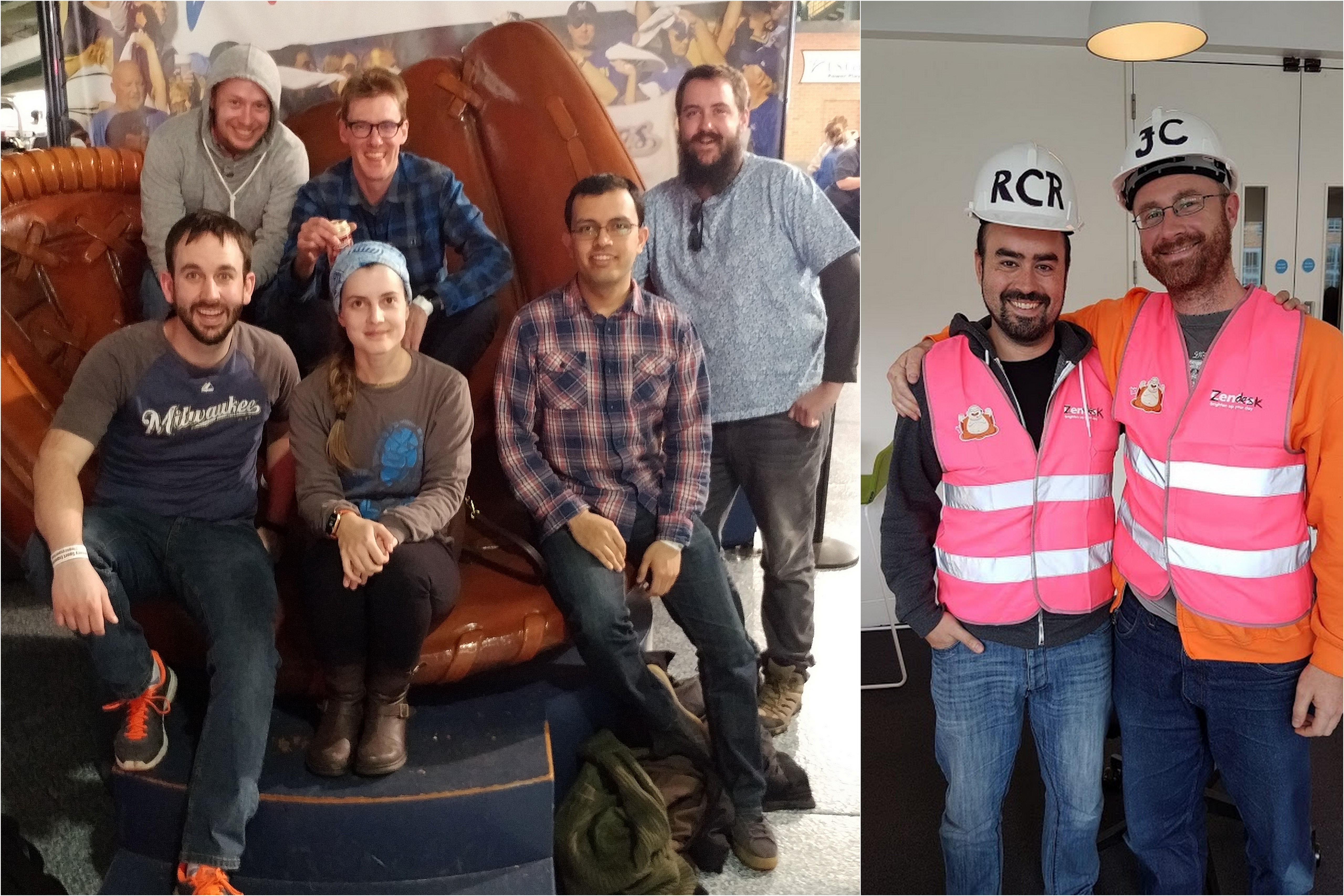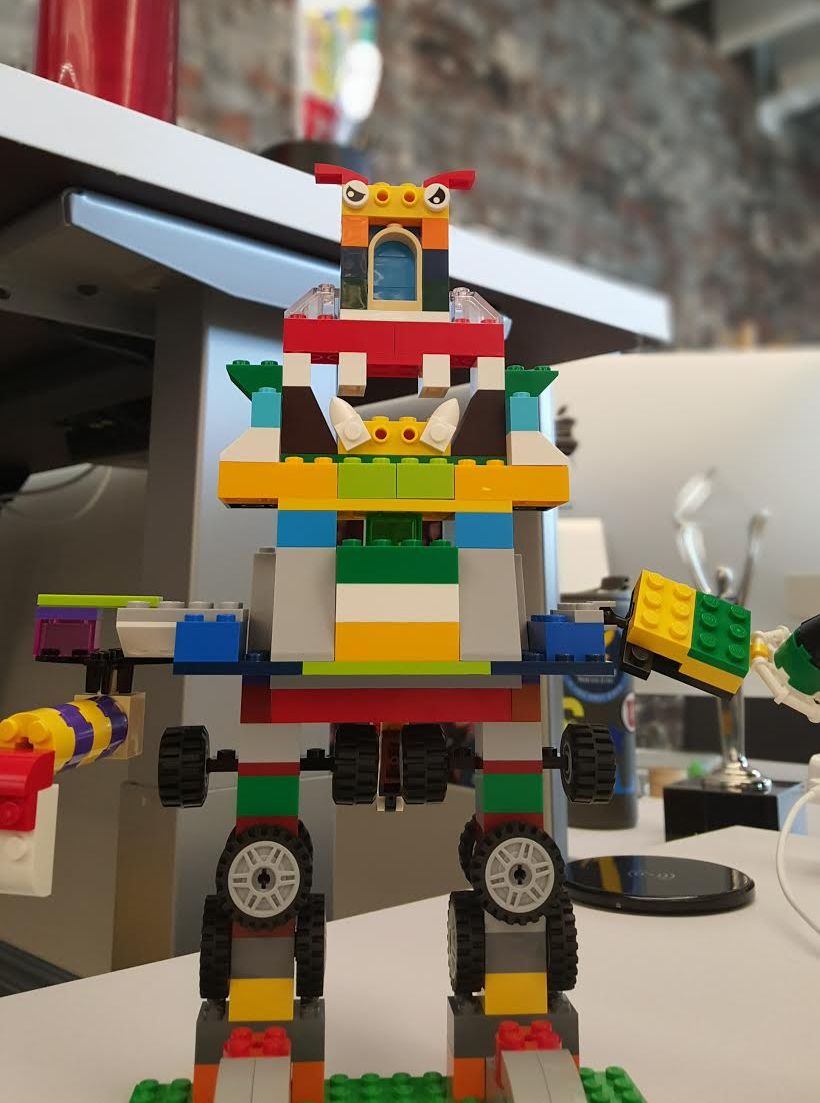Each month we shine a spotlight on a member of Zendesk’s Global Advocacy team to learn from our advocates’ on-the-job expertise. This time around, we wanted to illuminate our entire Tier 3 team, as they truly stand as one.
Zendesk’s global Tier 3 team is a small, but mighty group totaling 14 people spread across our offices in San Francisco, Madison, Dublin, Manila, and Melbourne. The group may handle only 5-10 percent of all Zendesk tickets, but they go deep—investigating performance issues, building tools to resolve complex issues, and sometimes even troubleshooting customer code. What sets Tier 3 apart is that they work on a ticket for as long as it takes to resolve the issue. Sometimes this takes hours, sometimes longer. One humble advocate said he once logged 15 or more hours on a single ticket. Other times, it takes the entire team, passing a ticket between time zones. As Adam Lobb, who manages the Tier 3 teams in San Francisco and Madison, explained, “We engage the hive mind, so to speak. We use a Slack channel to communicate everything we know about the status of an issue and then the next team picks it up.”
Jake Bantz, a Team Lead based in Madison, Wisconsin added, “I’m proud of the way our group swarms around high-priority customer issues. The collective effort, knowledge, and determination of the team in collaborative situations like these are like none other.”
I spoke with a few members of the team to learn more about the mystery and magic behind Tier 3. To begin with, I was curious about the bee metaphors. Rather than being part of the team’s charter, it turned out that they were coincidental—evidence of a hive mind, indeed.
Why is it so hard to find a Tier 3 advocate? How is their time allocated?
Adam Lobb: There’s only a few Tier 3 advocates in each office, and they’re deep-diving into the hardest of the hard problems. That said, at least 25 percent of the team’s time is devoted to working on projects that extend the capabilities of teams outside our own. Often this means creating documentation for Zendesk’s internal knowledge base, used by all tiers of support. Additionally, all bugs are routed through Tier 3 so that the team stays abreast of known issues in any Zendesk product. All ticket escalations also pass through the team so that we can provide quality assurance and ensure that the ticket is escalated to the right team or person.

What are some projects the team has worked on that you’re most proud of?
Joey May: This is one team that I’ve seen work in unison. They are developing really elegant solutions and, sometimes, delivering bad news in the best of ways. One proof-of-concept the team worked on is a widget that helps customers to test their web widget.
Adam Lobb: One thing that the team always works on is education, to enable our fellow advocates in Tier 1 and Tier 2. We had a large initiative around creating an escalation handbook. The team also works on app development, most notably on the Out of Office app, which involved six members of the team, across the globe. The app, which allows Zendesk Support admins to manage agents’ vacations statuses and to reassign tickets, is now available to Zendesk customers in the apps marketplace.
What’s the secret sauce to being a Tier 3 advocate?
Dwight Bussman: We all delight in teaching and mentoring. We try and offer a fresh perspective on complex problems for advocacy, and to be a technical point of contact for sales, as well as in discussion with developers when creating documentation and customer use-cases.
Jake Bantz: To balance being able to dig into technical issues while keeping what’s best for the customer in mind.
Adam Lobb: The team has to have persistence and patience; a lot of the issues take a long time. We have to have a broad scope—to have wide knowledge across products, but also the ability to be very technical. Also, it takes teamwork—jumping in to help each other and to form close-knit relationships. I’d also say, we like to have fun and do goofy things.

Case in point: recently, Tier 3 recently had a LEGO-building competition between offices. Each team received a kit of LEGOS with the goal of building a robot without instructions.
Who won? Who knows. This is a team invested in the process. And, from my perspective as a writer, the team’s accidental bee metaphor is apt. While bees work for us humans, pollinating our crops, they’re also building their hives for the collective good of their own colony—and it takes more than a single bee to build a honeycomb.
For more from Zendesk advocates:
Abel Martin, on building great internal partnerships
Arthur Mori, on what everyone should know about Tier 1 support
Benjamin Towne, on mentoring and offering constructive criticism
Rodney Lewis, on setting up an internal shadowing program
Sarah Kay, on her move from advocate to data analyst
Ramona Lopez, on rolling out an advocate recognition program
Aurash Pourmand, on practicing customer empathy
Anna Lee Ledesma, on the skill every great chat agent needs to have
Mark Fado, on providing dedicated 1:1 client support
Justin Helley, on advocacy training and development
Guillaume Deleeuw, on problem-solving in Tier 2 technical support
